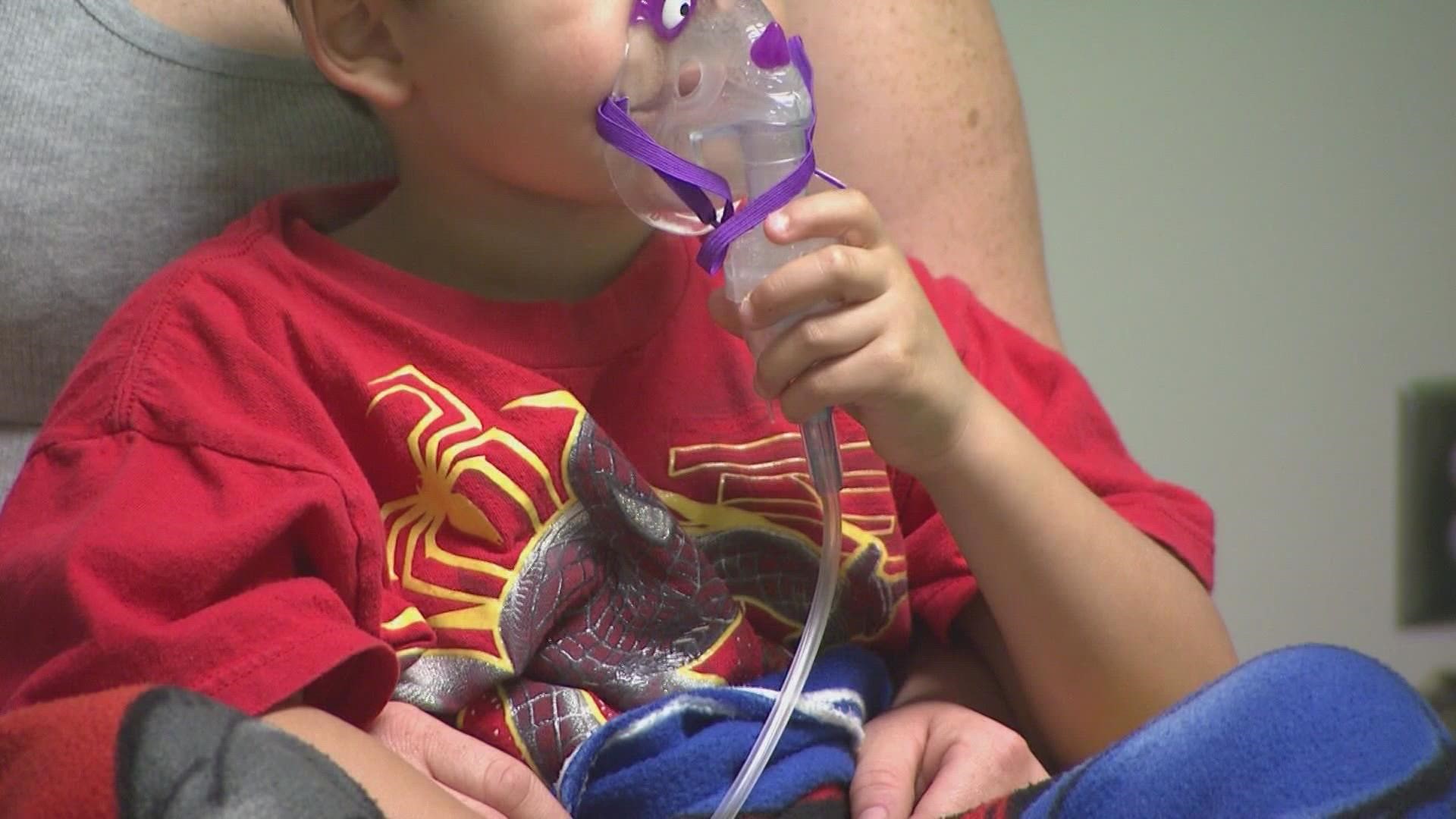SEATTLE — After weeks of poor air quality and seasonal changes, physicians in Seattle and Tacoma say they’re seeing unprecedented volumes of children with respiratory illnesses.
Numbers from Mary Bridge Children's Hospital show that 60% of the visits to the Emergency Department are respiratory-related.
“Anybody who has a respiratory problem to begin with has had a really bad fall so far,” said Dr. Grant Keeney, who works in the Emergency Department as a pediatric emergency physician.
Dr. Keeney said that in the past week alone, 30% of their virus tests came back positive for a respiratory virus, with a third of those testing positive for Respiratory Syncytial Virus Infection (RSV).
Dr. Russell Migita, attending physician and a clinical leader of Emergency Services at Seattle Children’s wrote in a statement that, "throughout our hospital and urgent care clinics, we are seeing about 20-30 positives per day. This number is likely to go higher."
After two years of at-home learning, Dr. Keeney said grade schoolers are particularly susceptible to respiratory viruses like RSV, now that protocols to stop the spread of COVID aren’t being followed so closely.
“That age group didn’t get sick as much, because whether it’s online remote learning, social distancing, masking or hand washing, and now that those behaviors aren’t being commonly used, those kids’ immune systems are seeing these viruses for the first time in a while and are really reacting to that,” he said.
The situation puts even more strain on a hospital system already under pressure.
Keeney said the average wait time in the emergency room is four to five hours, and up to eight children can be waiting for one bed at any given time.
But Keeney said that given what’s at stake, the staff at Mary Bridge is already preparing to go the extra mile to ensure that all the children that come in are cared for.
“We are actively looking into all options,” Keeney said. “Nothing is off the table.”
Who is at risk for RSV?
Infants, young children and older adults are the most severely impacted by RSV.
People with asthma may experience asthma attacks as a result of RSV infection, and people with congestive heart failure may experience more severe symptoms triggered by RSV, according to the Center for Disease Control and Prevention (CDC).
What are the symptoms of RSV?
People infected with RSV usually show symptoms within four to six days after getting infected. The most common RSV symptoms are:
- Runny nose
- Decrease in appetite
- Coughing
- Sneezing
- Fever
- Wheezing
These symptoms usually appear in stages and not all at once. In very young infants with RSV, the only symptoms may be irritability, decreased activity and breathing difficulties, according to the CDC.
How is RSV treated?
According to the CDC, there isn’t a vaccine against the RSV virus specifically, but Dr. Keeney advised parents to make sure to keep up with habits that were used to keep COVID at bay, such as hand washing, covering of the mouth when sneezing or coughing, and if staying home when feeling sick.
Most RSV infections go away on their own in a week or two.

